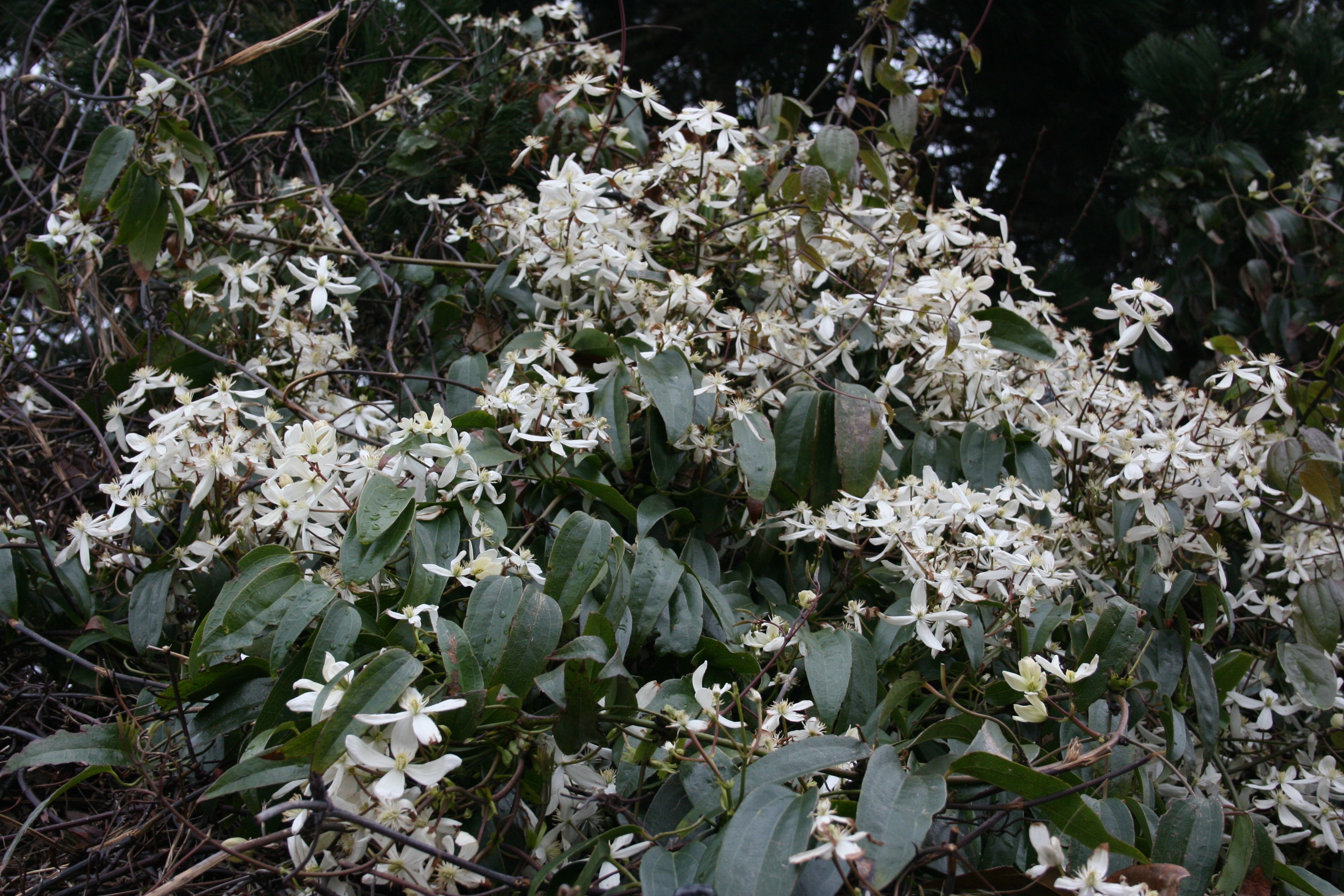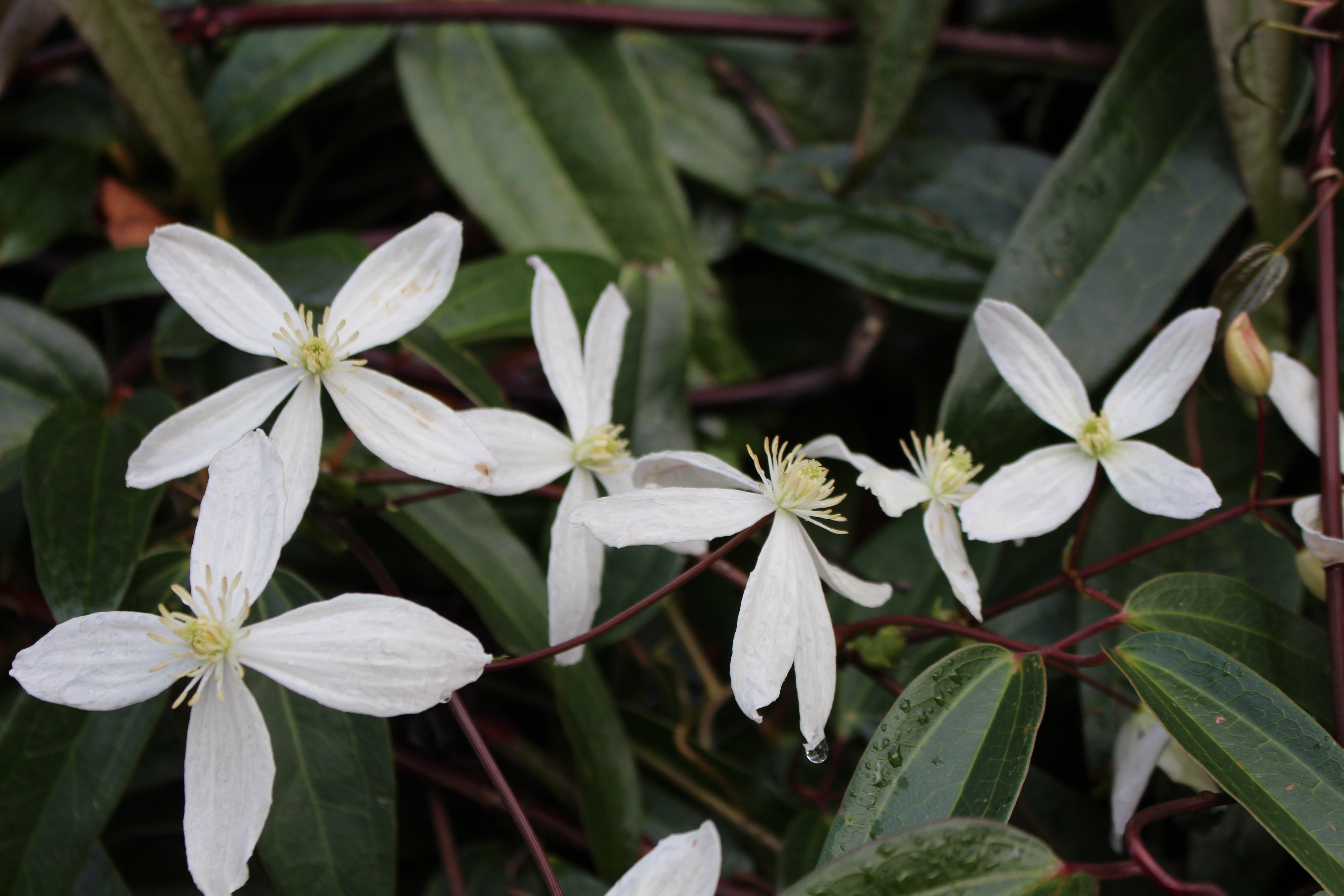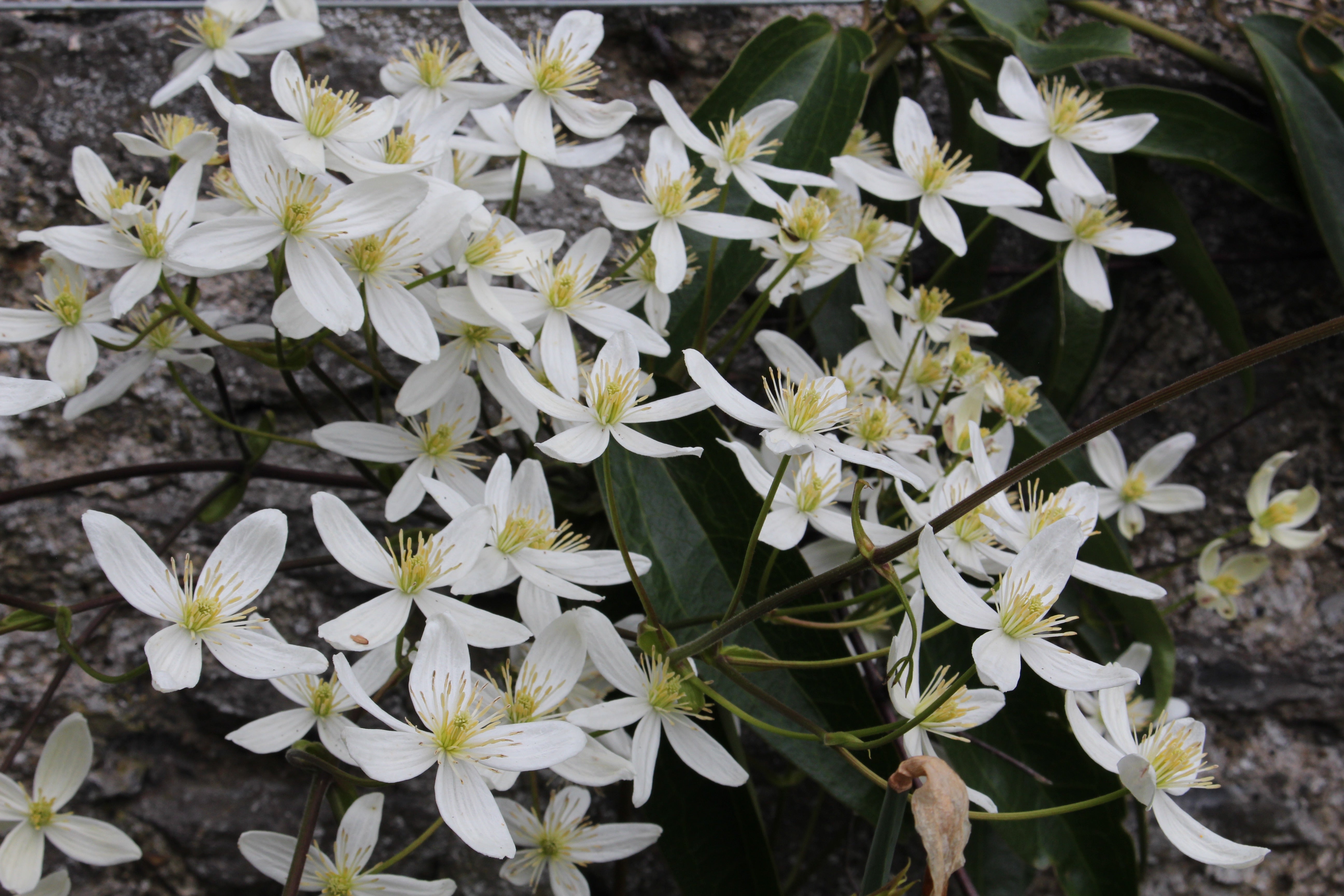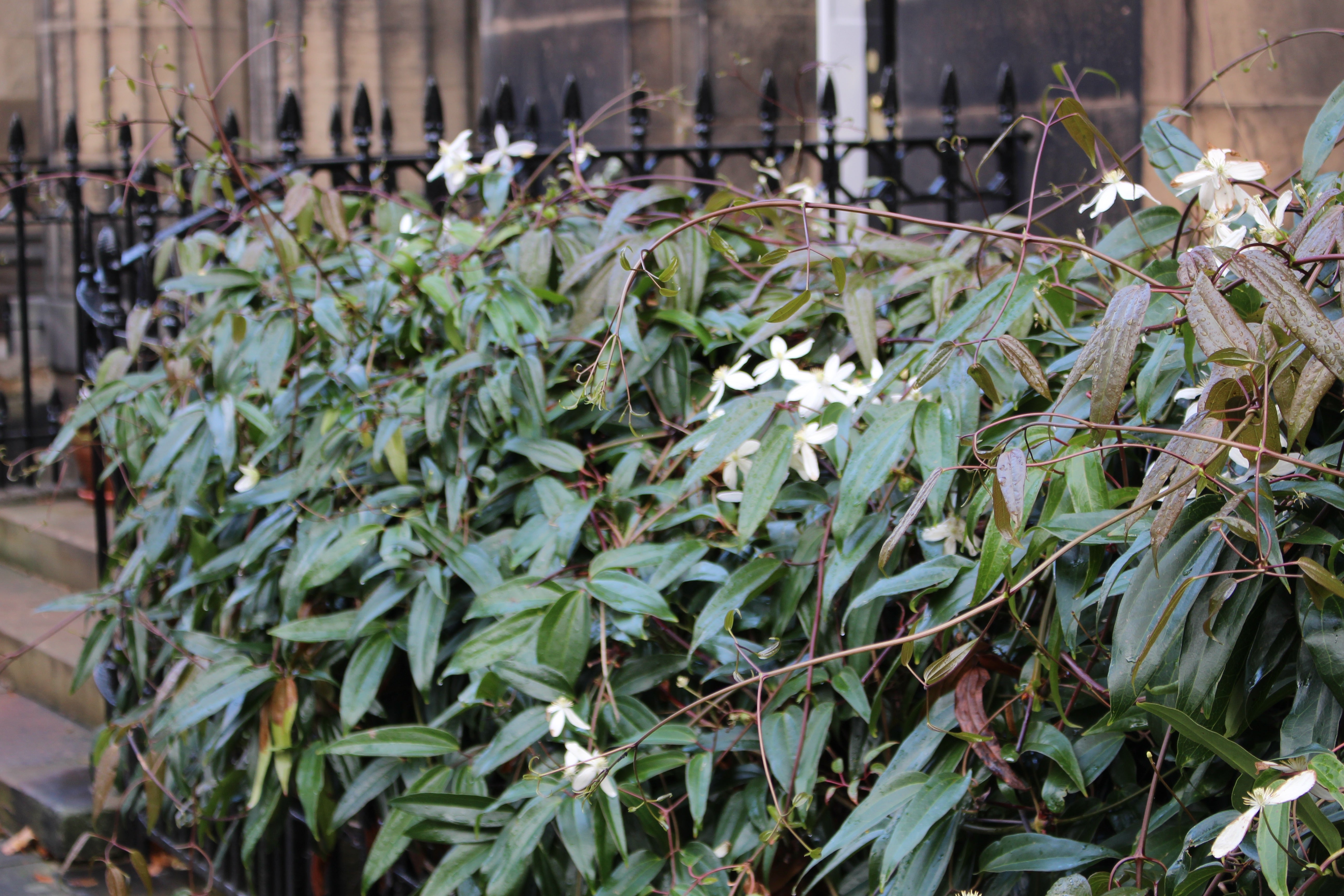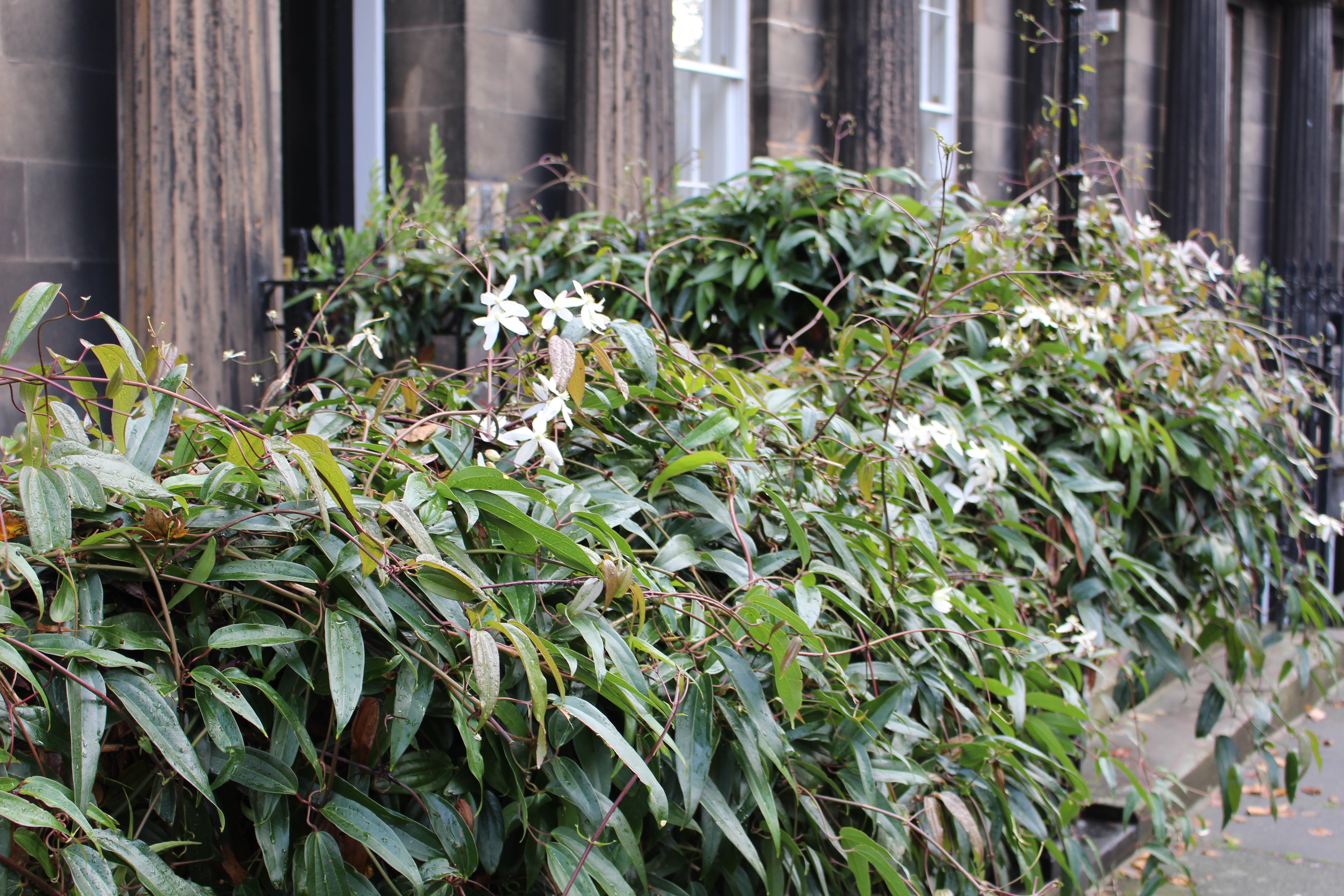Clematis armandii
Approx. 0.5 litre pot
About this cultivar:
Clematis armandii provides creamy or pinky white spring flowers and green leaves, emerging bronze-tinged. Named for Father Armand David (1826-1900), a Jesuit missionary and plant collector in China. Familiarly called 'the evergreen clematis', there are other evergreen clematis of course, but Clematis armandii is by far the best known and most requested of all. This Chinese species and its cultivars are strong climbers, depending on their situation, and so easy to train horizontally that they have often become hedges. Of all familiar clematis this is the first species to flower in the Spring. For a month or more the impression is one of great abundance but this is one clematis in which the foliage may count for at least as much as the flowers, by reason of its long-lasting ornamental value.
Since they bear their flowers on the year-old wood, the best time for pruning (if you want to prune at all) is just after the Spring bloom is over. Usually it is a simple matter of clearing away frayed ends and unwanted portions of the vine.
- Position: Full sun, partial shade
- Soil: Almost any soil, grows well in Ballyrobert
- Flowers: February, March, April, May
- Other features: Royal Horticultural Society Award of Garden Merit (RHS AGM), Grows well in Ballyrobert
- Hardiness: H4 - Hardy through most of the UK (-10 to -5°C), Fully hardy - grows well in Ballyrobert!
- Habit: Climbing
- Foliage: Evergreen
- Height: 200 - 800 cm (6 - 25 ft)
- Spread: 200 - 400 cm (6 - 12.5 ft)
- Time to full growth: 2 to 5 years
- Plant type: Herbaceous Perennial, climber
- Colour: Pink, white, green
-
Goes well with: Drainpipes, roses, trees, walls, anything they can climb; even other clematis
About this genus:
Clematis, is one of our favorite genus. But not just ours. William Robinson (1838-1935) said about them ‘As hardy as the British Oak…I believe them to be the finest of all hardy flowers and wish them a pleasant time with their admirers.’ Christopher Lloyd (1921-2006) even started a specialty Clematis nursery within his famous garden at Great Dixter.
Clematis (meaning"a climbing plant" in ancient Greek) is a genus of about 300 species within the buttercup family (Ranunculaceae). Their garden hybrids have been popular among gardeners, beginning with Clematis × jackmanii, a garden standby since 1862. Most species are known as clematis in English, while some are also known as traveller's joy, (a name invented for the sole British native, C. vitalba, by the herbalist John Gerard), virgin's bower, old man's beard, leather flower or vase vine.
Clematis are mainly found throughout the temperate regions of the Northern Hemisphere, rarely in the tropics. The wild Clematis species native to China made their way into Japanese gardens by the 17th century. Japanese garden selections were the first exotic clematises to reach European gardens, in the 18th century.
The climbing varieties are valued for their ability to scramble up walls, fences, and other structures, and also to grow through other plants, such as shrubs and trees. Some can be trained along the ground to provide cover. Because of their adaptability and masses of spectacular flowers, clematis are among the most popular of all garden plants. Because different cultivars flower during different seasons it is, in theory, possible to have a clematis in flower at any time throughout the year.
They will grow in almost any garden soils and situations, many can be grown in containers. They are a great plant for any garden - don't believe they are for informal gardens only. We grow them almost everywhere in Ballyrobert. Try them with drainpipes, shrubs, roses, trees, anything they can climb;even other clematis.
Much confusion surrounds Clematis pruning. We say - don't worry. As mentioned above, Christopher Lloyd had a specialty Clematis nursery. Here is a I-think-relevant 1969 quote of his "[The] gardener’s eternally repeated question “When should I?” and “What’s the best time to?”, I've concluded that nine times out of ten the answer is “When you’re thinking about it; when you’re in the mood.”" Amen to that.

